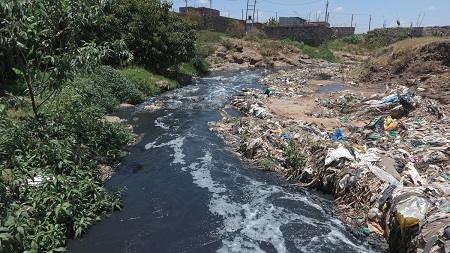These are diseases which are spread through contaminated water.
Contaminated water has germs that cause the diseases.
For example, when a person who has cholera passes stool in a river, the water gets contaminated.
A healthy person who takes this water without boiling catches cholera.
Some water borne diseases are; cholera, typhoid, and bilharzia.

